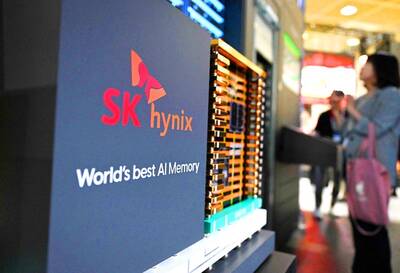Ukraine has told its trading partners it wants to raise maximum tariffs on hundreds of imported goods, a move that could unleash protectionist forces and may even pose a threat to the US$18 trillion global trade system.
In a document marked “secret” sent to members of the WTO last week and seen by Reuters, Ukraine says it intends to raise the limit on the tariffs it can legally impose on more than 350 goods. Based on figures in the proposal, Kiev’s plan would hit overall imports worth more than US$4.6 billion last year.
The document, which diplomats said they had received on Sept. 14, consists of 85 pages of annexes detailing the items affected. It says Ukraine is prepared “to enter into negotiations and consultations” with WTO members for the concessions.
There was no response to requests for comment from Ukraine officials in Geneva or Kiev. Ukraine, a relative newcomer to the WTO whose trade deficit widened by more than 50 percent last year to US$14 billion, has already threatened to block car imports and said last year it would act to improve its terms at the WTO.
The US said Ukraine’s possible decision would raise “serious concerns,” although WTO officials played down the move, which, though radical, is permissible under the agency’s rules.
Some trade experts fear the plan, which would force hundreds of trade deals to be renegotiated, could trigger increasingly protectionist policies worldwide. The four-year-old global financial and economic crisis has so far not led to a rush to protectionism, but under pressure to help their producers weather the storm, governments have pounced on “unfair” moves by their rivals. The US and Brazil were the latest to trade diplomatic blows.
Some diplomats say Ukraine’s plan to renegotiate on so many goods — cars, trucks, agricultural machinery, meat, flowers, fruit, vegetables, washing machines and even syringes — is tantamount to reopening negotiations on its membership terms.
“We don’t know what is behind Ukraine’s move,” one trade diplomat said. “Maybe the financial crisis. Maybe political reasons. Maybe industrial.”
Longstanding WTO members typically have high ceilings and set tariffs well below the maximum, giving them wriggle-room in tough times. The tariffs of newer members, many of which were forced to accept tough terms to join the WTO, are often set right at the ceiling. Some, including Ukraine, which joined in 2008, have bristled over that constraint.

Intel Corp chief executive officer Lip-Bu Tan (陳立武) is expected to meet with Taiwanese suppliers next month in conjunction with the opening of the Computex Taipei trade show, supply chain sources said on Monday. The visit, the first for Tan to Taiwan since assuming his new post last month, would be aimed at enhancing Intel’s ties with suppliers in Taiwan as he attempts to help turn around the struggling US chipmaker, the sources said. Tan is to hold a banquet to celebrate Intel’s 40-year presence in Taiwan before Computex opens on May 20 and invite dozens of Taiwanese suppliers to exchange views

Application-specific integrated circuit designer Faraday Technology Corp (智原) yesterday said that although revenue this quarter would decline 30 percent from last quarter, it retained its full-year forecast of revenue growth of 100 percent. The company attributed the quarterly drop to a slowdown in customers’ production of chips using Faraday’s advanced packaging technology. The company is still confident about its revenue growth this year, given its strong “design-win” — or the projects it won to help customers design their chips, Faraday president Steve Wang (王國雍) told an online earnings conference. “The design-win this year is better than we expected. We believe we will win

Power supply and electronic components maker Delta Electronics Inc (台達電) yesterday said it plans to ship its new 1 megawatt charging systems for electric trucks and buses in the first half of next year at the earliest. The new charging piles, which deliver up to 1 megawatt of charging power, are designed for heavy-duty electric vehicles, and support a maximum current of 1,500 amperes and output of 1,250 volts, Delta said in a news release. “If everything goes smoothly, we could begin shipping those new charging systems as early as in the first half of next year,” a company official said. The new

SK Hynix Inc warned of increased volatility in the second half of this year despite resilient demand for artificial intelligence (AI) memory chips from big tech providers, reflecting the uncertainty surrounding US tariffs. The company reported a better-than-projected 158 percent jump in March-quarter operating income, propelled in part by stockpiling ahead of US President Donald Trump’s tariffs. SK Hynix stuck with a forecast for a doubling in demand for the high-bandwidth memory (HBM) essential to Nvidia Corp’s AI accelerators, which in turn drive giant data centers built by the likes of Microsoft Corp and Amazon.com Inc. That SK Hynix is maintaining its